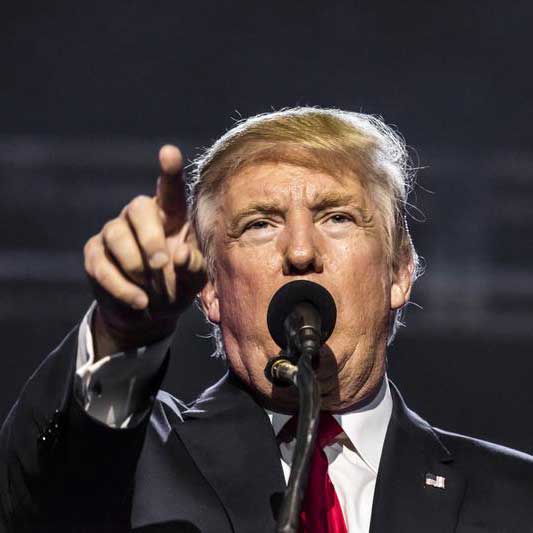Iran has declined direct discussions with the United States regarding its advancing nuclear program, marking its first official response to a letter sent by President Donald Trump to Iran’s Supreme Leader Ayatollah Ali Khamenei.
On Sunday, March 30, President Masoud Pezeshkian announced that Tehran is not open to face-to-face talks but is willing to consider indirect negotiations. This response was communicated through Oman, which has historically acted as a mediator between the two nations.
“We don’t avoid talks; it’s the breach of promises that has caused issues for us so far,” Pezeshkian stated during televised remarks at a Cabinet meeting. “They must prove that they can build trust.”
The announcement occurs amid increasing tensions following Trump’s return to office and his reinstatement of the “maximum pressure” campaign against Iran. Relations have significantly worsened since Trump’s unilateral withdrawal of the United States from the 2015 nuclear agreement during his first term, leading to a sharp decline in Iran’s currency and escalating regional conflicts.
Trump’s letter, which arrived in Tehran on March 12, suggested negotiations and included warnings about potential military action. While the specific contents remain undisclosed, Trump previously shared the nature of his message in a television interview.
“I’ve written them a letter saying, ‘I hope you’re going to negotiate because if we have to go in militarily, it’s going to be a terrible thing,'” Trump stated.
The U.S. State Department responded to Pezeshkian’s announcement by reiterating the firm stance on Iran’s nuclear ambitions. It emphasized that President Trump has made it clear that the United States cannot allow Iran to acquire a nuclear weapon. He has expressed a willingness to negotiate a deal with Iran. However, if the Iranian regime rejects a deal, the president has indicated he will consider alternative actions, which would have severe consequences for Iran.
Trump commented on the situation while traveling from Florida to Washington, D.C., on Sunday evening. “We’ll see if we can get something done,” he told reporters. “And if not, it’s going to be a bad situation.”
This exchange is the latest chapter in the strained U.S.-Iran relationship, with Trump’s approach reminiscent of his letter-writing to North Korean leader Kim Jong Un during his first term. While that correspondence led to face-to-face meetings, it did not result in substantive agreements limiting North Korea’s nuclear weapons program.
Khamenei had previously dismissed Trump’s overtures, mocking a similar attempt in 2019 when Trump tried to send a letter through then-Japanese Prime Minister Shinzo Abe.
Since Pezeshkian’s election six months ago, Iran’s stance on engagement with the West has shifted. Initially campaigning on promises to rebuild international relationships, the moderate Iranian president has recently aligned with Khamenei’s tougher stance, particularly after the Supreme Leader warned in February that talks “are not intelligent, wise or honorable with his administration.”
Meanwhile, mixed signals have emerged from Iran. At recent Quds Day demonstrations, traditionally anti-American and anti-Israeli events, participants were reportedly instructed to limit their chants to “Death to Israel!” rather than including the customary “Death to America!” However, other indicators suggest ongoing hostility, such as Iranian parliamentary speaker Mohammad Bagher Qalibaf’s warning that American military bases in the region would be vulnerable to attack if Iran’s sovereignty were violated.
Qalibaf warned that the Americans are fully aware of their own vulnerabilities. He stated that any violation of Iran’s sovereignty would act like a spark in a gunpowder depot, igniting chaos across the entire region. In such a situation, he added, neither their bases nor their allies would be secure.
The standoff occurs as international concerns about Iran’s nuclear capacity intensify. Both Israel and the United States have repeatedly stated they will never permit Iran to acquire nuclear weapons, which has fueled fears of potential military confrontation as Tehran continues enriching uranium at nearly weapons-grade levels—a practice typically associated with nations possessing nuclear arsenals.
A February report from the International Atomic Energy Agency, the United Nations’ nuclear watchdog, indicated that Iran has accelerated its production of near weapons-grade uranium. Though Iran maintains its program serves peaceful purposes, some officials have increasingly suggested the country might pursue nuclear weapons.
Iran’s reluctance to engage directly with Trump likely stems in part from his order to kill Iranian General Qassem Soleimani in a Baghdad drone strike in January 2020. U.S. officials have claimed Iran plotted to assassinate Trump prior to his November election victory, though Tehran denied these allegations while continuing to issue threats against him.
Trump has suggested he’s considering both military action and secondary tariffs if Iran refuses to agree to a nuclear deal. “If they don’t make a deal, there will be bombing,” he reportedly said in a telephone interview with NBC on Sunday.
In the latest developments, Iran and the United States commenced indirect negotiations concerning Iran’s nuclear program on Saturday, April 12, 2025, in Muscat, Oman. Iranian Foreign Minister Abbas Araghchi and U.S. Special Envoy Steve Witkoff are leading their respective delegations, with Omani mediators facilitating the discussions.
While Trump has characterized the forthcoming talks as direct, Iran maintains that the negotiations will be conducted indirectly.
In the lead-up to these negotiations, the United States has deployed six B-2 Spirit stealth bombers to Diego Garcia, an island in the Indian Ocean. U.S. Defense Secretary Pete Hegseth stated that it is up to Iran to interpret this deployment, suggesting it serves as a strategic deterrent.
Additionally, on April 9, the U.S. imposed new sanctions targeting five Iran-based entities and one individual associated with Iran’s nuclear activities. These measures aim to prevent Iran from acquiring nuclear weapons and coincide with President Trump’s expressed willingness to negotiate, coupled with warnings of severe consequences should Iran decline.
Iran has also cautioned neighboring countries against assisting any potential U.S. military actions, viewing such support as hostile acts. This warning reflects heightened regional tensions as the negotiations approach.
The upcoming talks represent a critical juncture in addressing international concerns over Iran’s nuclear program and the broader stability of the Middle East.

